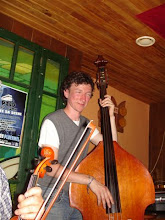





...........all pictures Dylan James...............[Erdély/Transylvania, August 2009...]....................language at walk




 A text I am writing in French to congratulate an old friend - but the opportunity for me to bring back some very old pictures - in my very first "photographer-weeks".
A text I am writing in French to congratulate an old friend - but the opportunity for me to bring back some very old pictures - in my very first "photographer-weeks".
 Je dois rediger ce texte en francais, puisque j'ai le grand plaisir d'apprendre a l'instant que l'une de mes 'camarades' de Lycee, Kristell, se rend elle-meme a son tour grace aux fonds europeens-jeunesse pour un SVE a Kaposvar, Hongrie.
Je dois rediger ce texte en francais, puisque j'ai le grand plaisir d'apprendre a l'instant que l'une de mes 'camarades' de Lycee, Kristell, se rend elle-meme a son tour grace aux fonds europeens-jeunesse pour un SVE a Kaposvar, Hongrie.

 2008, anniversary of May '68, forgetting the foundations and grounds of this thought-provoking period for academia, politicians, and the post-war generation, which lied somewhere between Budapest and Warsaw in the late 50s and early 60s... creating context also for the future changes of the 90s... Should we ask how generations, geographical zones, cultures and national schools have influenced the advancing sense of European hybridism?
2008, anniversary of May '68, forgetting the foundations and grounds of this thought-provoking period for academia, politicians, and the post-war generation, which lied somewhere between Budapest and Warsaw in the late 50s and early 60s... creating context also for the future changes of the 90s... Should we ask how generations, geographical zones, cultures and national schools have influenced the advancing sense of European hybridism? On the week-end following the 8th of March, Hungary voted for a yes (three times) - "3 igen" - against the government, and 20% voted no against the referendum. Approximately 80% had 'decided against', by voting 'for it'. The majority reflected doubt and the current criticism of the government, thus leading to the national ordeal of the liberal and nationalist Fidesz party. Europe goes right by bits, giving mythical specters of a nation surviving an accident.
On the week-end following the 8th of March, Hungary voted for a yes (three times) - "3 igen" - against the government, and 20% voted no against the referendum. Approximately 80% had 'decided against', by voting 'for it'. The majority reflected doubt and the current criticism of the government, thus leading to the national ordeal of the liberal and nationalist Fidesz party. Europe goes right by bits, giving mythical specters of a nation surviving an accident.
